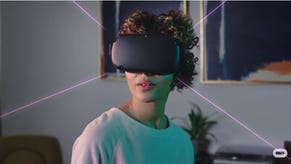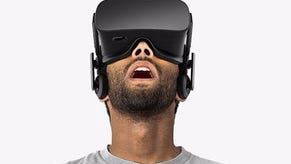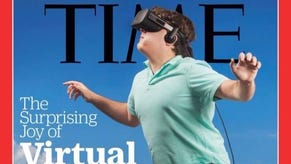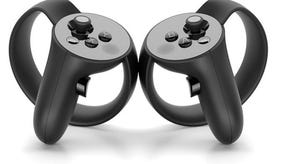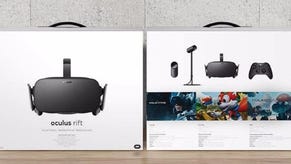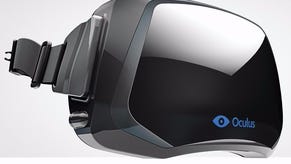Oculus Rift's Palmer Luckey answers some burning questions
On Vive, pricing, Xbox One game streaming, hardware revisions and more.
Brace yourselves for the virtual reality assault on your wallets early next year. Q1 2016, which probably means March, is the target for both the consumer version of Oculus Rift and the wider availability of HTC Vive (limited availability begins later this year). PlayStation VR - who knows? But we're tantalisingly close.
So much has happened in Oculus Rift inventor Palmer Luckey's life in preparation for this moment.
As a 16-year-old in 2009 he dreamed a dream of a VR headset people could afford, and seven years later he will have realised it. He's also, along the way, become a multimillionaire, having sold his company to Facebook for $2bn. (He first told me his remarkable story in 2013.)
It's with Luckey I sit again, at Gamescom, to iron out details now. Below we talk Vive, pricing, Xbox One game streaming and the hardware's future after Rift and Touch come out. I've grouped by topic to make it more digestible.
What do you think about Vive beating Rift to the consumer release-punch?
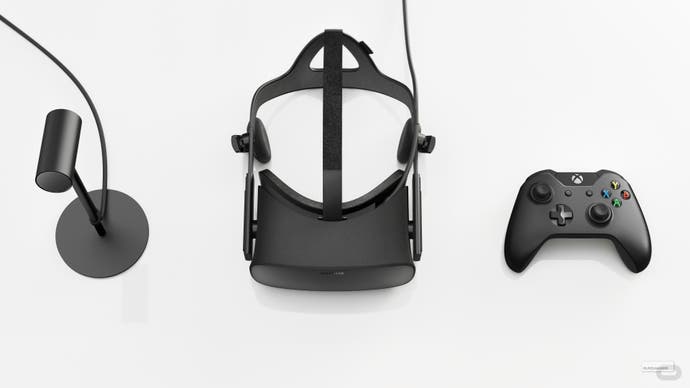
"We're still at the forefront," Luckey says. "Other people getting into the industry: that's great. It shows that it's not just one crazy company that thinks VR is going to take off. It would be a bad sign if other people didn't think VR was something they should copy and get into. But we're currently in the best technological position in terms of bringing VR to a lot of people.
"It's worth noting that it's not like we developed Touch in a few months as a response to [Vive]."
Oculus Touch is the name of the handheld controllers that put your hands in Oculus Rift's virtual reality. Touch will arrive a "couple of months" after consumer Oculus Rift in first-half 2016. I experience the Touch demo at Gamescom and it's an impressive next step into a believable virtual world. It's this progressive step that had people - us - so excited about Vive.
Luckey continues: "It's not like 'oh they have this and then you guys made Touch'. Touch has been in development for literally years." How many years? "About two years ago [work began]."
How much will Oculus Rift cost in a shop?
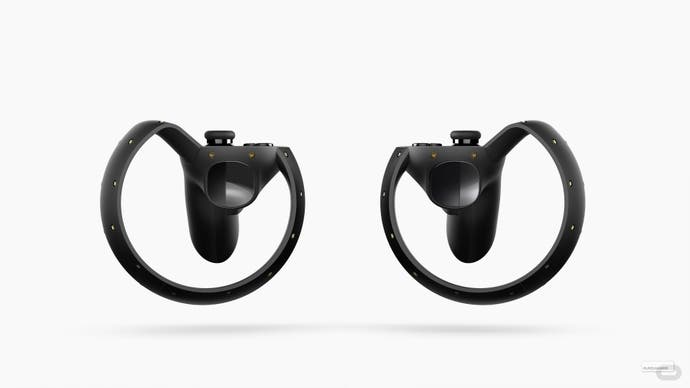
"We're not trying to make a big profit on hardware," he says, and as a guide, the most recent Oculus Rift development kit costs $350. "For us it's about getting it out there and growing the VR industry, and then we have a lot of VR software that we've been investing in that we think people will want to buy, so it's not a matter of making a profit on hardware alone.
"We'll announce the price when we launch pre-orders later in the year," he adds. "We're selling it as affordably as we possibly can. People are going to get really good value for what they're paying."
But will it, crucially, be cheaper than Vive? HTC, the company manufacturing Vive, hasn't announced a price but has suggested the headset will be aimed at a high-end market, which probably means it'll be expensive. Here's Luckey: "We're just selling it as cheap as we can. Whatever they end up selling it for, it doesn't really impact what we're selling it for, because we're selling it as cheaply as we can sell our product."
Will Oculus Touch only be sold in pairs, and...
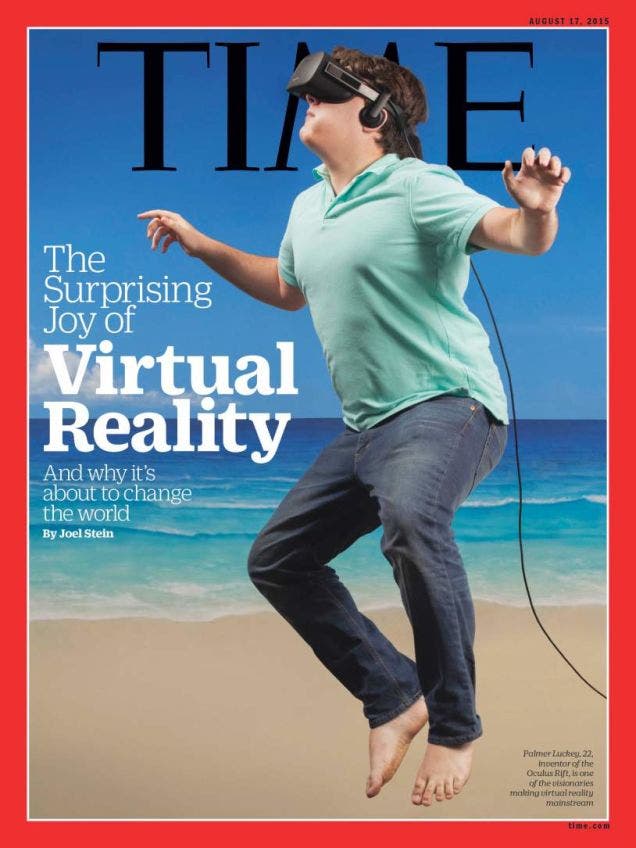
"Yes, two controllers together," he says. "You really have to have a pair so that you feel like your hands are in the virtual space, and you really can't do that with one."
What about the sensors we need to track us - do they come with it? (I recall there being multiple sensors in the room of the Touch demo I played. The room was also padded, like an asylum, and spacious. You can see it in a picture below.) "So the Rift comes with a sensor and Touch can work with only one sensor or it can work with two, three, four - it can scale up or down, either way," he says.
What about the physical room space it will require? The memory of Kinect 1.0, and the impossible-in-reality playing space it required to work properly, still remains fresh in many people's minds.
"We don't expect most people to have a space that [demo room] large," he says. "Most of the devs that we've been talking to are targeting much smaller spaces so people can all play Oculus Touch games without having to clear out their living room or their entire bedroom."
How does streaming an Xbox One game to Rift work?
"You can do it with any Xbox [One] game," he says. "It works over your network, so you don't have to plug it in. You just plug your Rift into your PC as you normally would, and you're able to stream your games from your Xbox over your network to a virtual screen.
"Right now all the Xbox streaming does is take Xbox games and then stream them into a virtual cinema. You can be sitting in a movie theatre and you can imagine being with your friends who are all able to watch you play; or have two people playing an Xbox game seeing their own view, kind of like split-screen except you don't have to see the other person's screen. That's really the point," he adds, "to stream it into a really high-quality cinema environment, not to play Xbox games in a special VR mode."
Is it the start of a bigger relationship between Oculus and Xbox?
"Well the main thing we're doing with Microsoft is integrating support for the Rift into Windows 10," he says, "so that DirectX 12 has a lot of optimisations for Oculus [and] there's a lot of plug-and-play optimisation to make sure the graphics-card drivers are treating it correctly - we've worked with AMD and Nvidia also. That's really been the key part of the partnership, optimising performance and ease of use in Windows so you can just plug it in and it works without any weird optimisation."
About the Oculus Rift storefront...
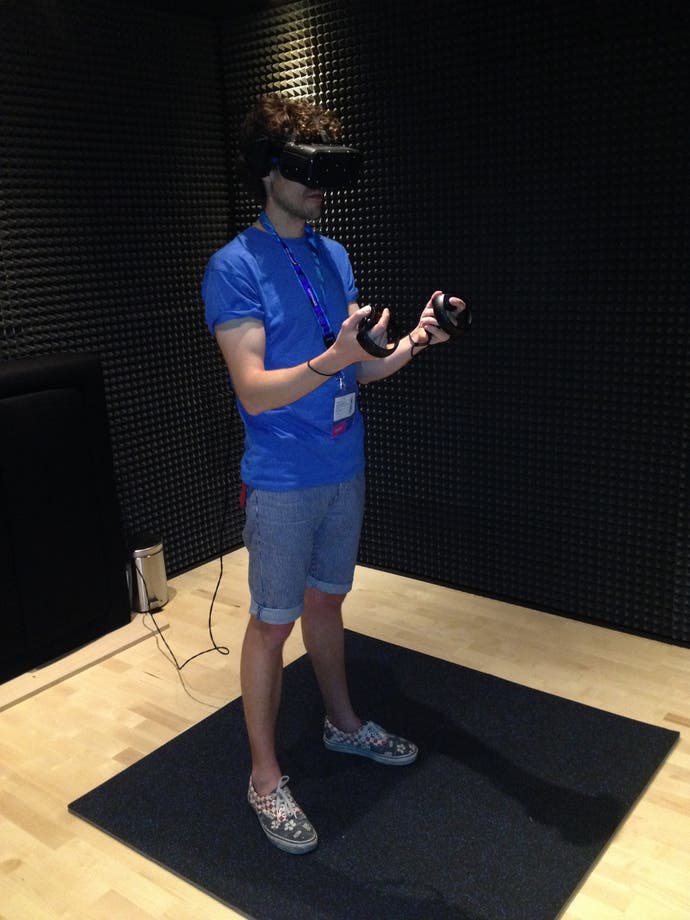
In the Oculus Rift consumer version demo there was a landing area that resembled a swanky modern-to-futuristic apartment, and floating in front of me were big thin panels representing game demos that I navigated to using an Xbox One pad (supplied with every Rift).
"What you saw is part of the hub but it's not the whole thing," Luckey says. "You notice that you couldn't buy anything or launch a friends list in there. That was just a launcher with a few things. But that's the type of hub that you're able to do. And you're able to do things like VR previews of games so rather than just show screenshots or videos of the game we can actually load a live preview and wrap it around you, so that as you're browsing around the store you can actually be inside a scene from a VR game.
"There'll be some small changes but that's generally the way it's designed now."
That's your landing area and as we get closer to launch we'll learn about how we can customise it. "You won't be stuck with that no," he says.
The shop itself, which may be represented by more than a simple panel, will sell "any kind of VR application people want". "So," he adds, "there'll be VR movie experiences, narrative experiences, educational software. Mostly it's probably going to be games, especially at the start, at launch, but any kind of VR application people want to sell we'll be putting through the store."
There's no guide price for games. "Nope: whatever people want to charge. That's up to the developer," he says.
What happens after Oculus Rift and Oculus Touch - revised hardware every year, every two years?
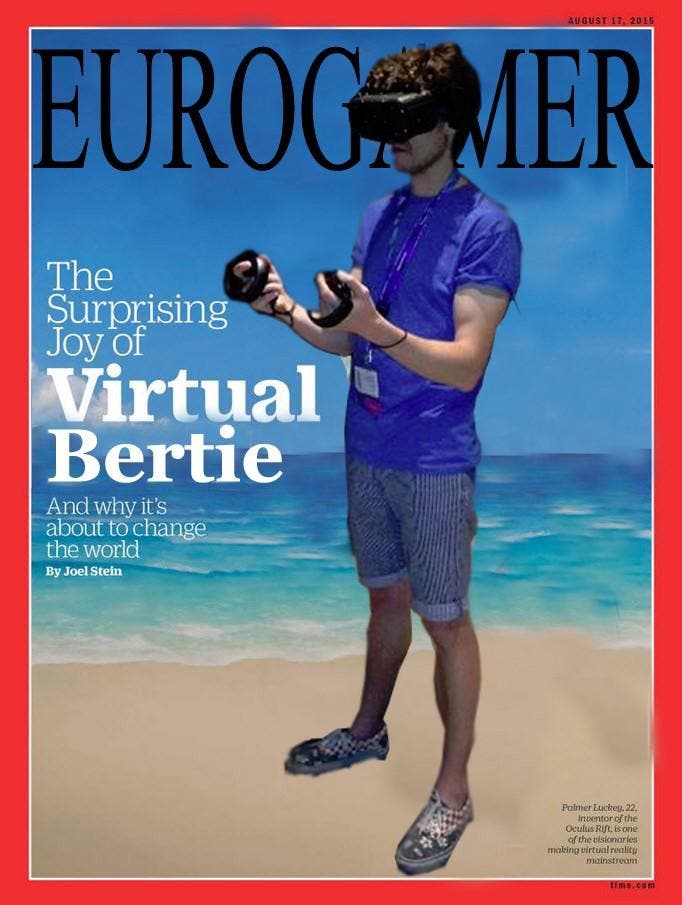
"Can't say - I mean, we're already working on next-generation hardware because that's what you have to do when you're working on cutting-edge technology," he says. "The lead times are very long on components so you have to start working on them years before you actually produce them. That's the same for the Rift: a lot of the parts we've been working on for years but they're only just now becoming possible to manufacture."
Will there be new ideas on the scale of Touch that will significantly alter the Oculus VR experience?
"The way to think about VR is about bandwidth between the virtual world and your body," he says. "It's not just a one-way street, it goes both ways. And the more that you can sense what your body is doing and feed that back into the game, the more that you can take from the game and feed that back to you - whether it's haptic feedback, sound or vision or touch - the more bandwidth you have in that connection, the more realistic it feels.
"You want to be able to do things like convey sense of touch, to track your entire body and facial expressions so you can get the full range of body language in virtual reality, not just where your hands are pointing at something. We're working on a lot of technology that will make all those things possible, but nothing to show just yet."
Will Oculus Rift change dramatically each hardware revision, then?
"It's going to be more evolutionary than revolutionary," he says. "There will be new features added one at a time, over time, or a few at a time, but you're not going to see some huge jump where all of these features come into play in one device.
How often will the revisions be - each year? "We'll see," he pauses. "It's not going to be as long as a console cycle for sure."
Finally, what's the biggest challenge you face?
"That none of the technology exists!" he blurts. "It's not just... With a games console it's about getting better graphics, better sound, better frame-rate, more objects on the screen; but in VR a lot of this tech just hasn't been invented yet and so you have to completely build it from the ground up. You can't just rely on computer hardware getting faster. So it's hard to predict when it will happen, when it will be launchable and how crucial to the experience it will be until you actually have things that are further along."


